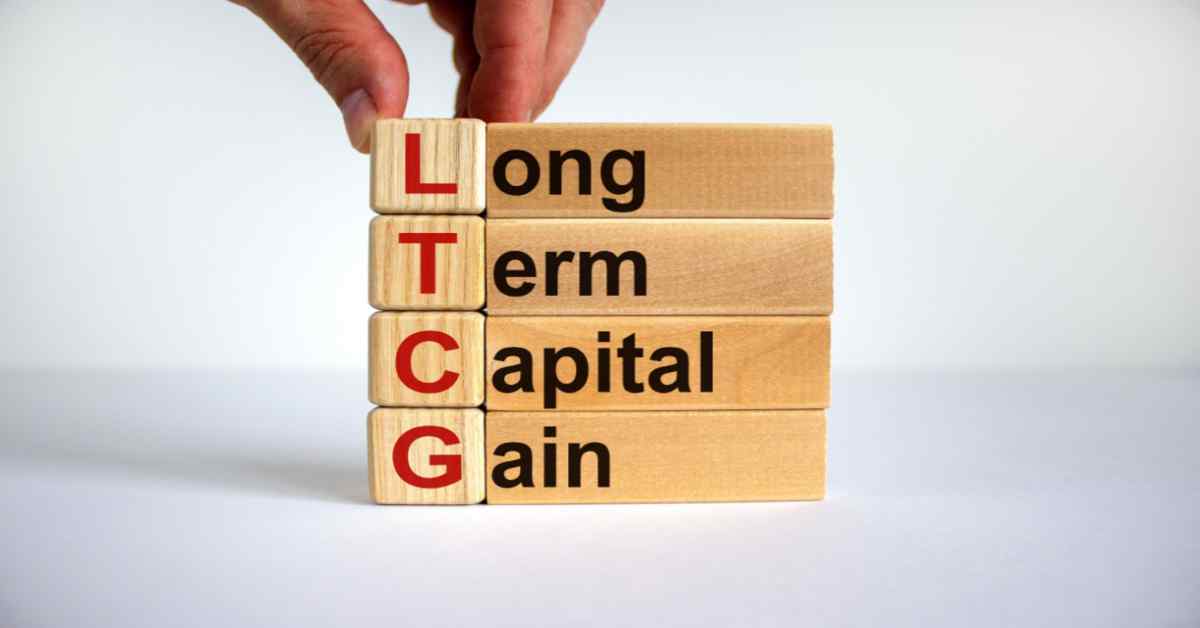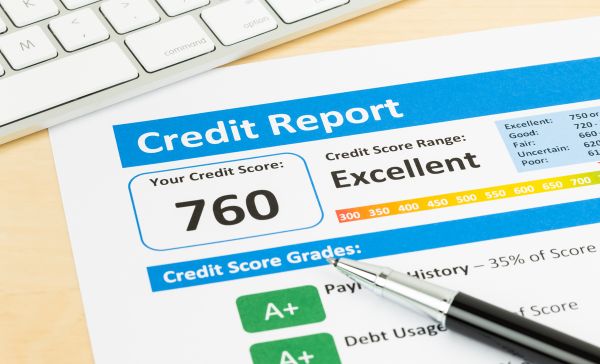Table of Contents
Quality Service Guarantee Or Painting Free

Get a rental agreement with doorstep delivery

Find the BEST deals and get unbelievable DISCOUNTS directly from builders!

5-Star rated painters, premium paints and services at the BEST PRICES!
Loved what you read? Share it with others!


Submit the Form to Unlock the Best Deals Today
Check Your Eligibility Instantly

Experience The NoBrokerHood Difference!
Set up a demo for the entire community

Tenant Super Relax Plan
Enjoy Hassle-Free Renting
 Full RM + FRM support
Full RM + FRM support Instant alerts & premium filters
Instant alerts & premium filters Rent negotiation & relocation help
Rent negotiation & relocation helpLong-Term Capital Gain Tax: Strategies, Changes, and Impact
Table of Contents
Long-term capital gains refer to the profit made from the sale of an asset that has been held for more than one year.
These gains are taxed at a lower rate than short-term capital gains, which are profits made from assets held for less than one year. In this blog, we will explore the basics of long-term capital gains, including how they are taxed, strategies for minimising tax liability, and the impact of recent tax law changes on long-term capital gains.
Whether you're an experienced investor or just starting, understanding how long-term capital gains work can help you make more informed investment decisions and potentially save you money on taxes. In this blog, therefore, we will not only cover what is a long-term capital gain in income tax but also how it varies across property types. Read on!
Quality Service Guarantee Or Painting Free

Get a rental agreement with doorstep delivery

Find the BEST deals and get unbelievable DISCOUNTS directly from builders!

5-Star rated painters, premium paints and services at the BEST PRICES!
What is Capital Gains Tax?

In India, capital gains tax is a tax on the profit made from the sale of a capital asset, such as property or shares. The tax rate and the way it is calculated can vary depending on the type of asset and the length of time it was held.
- Short-term capital gains tax: If the asset is held for less than 36 months, the gains made from its sale are considered short-term capital gains and are added to the income of the taxpayer and taxed at the applicable slab rate.
- Long-term capital gains tax: If the asset is held for more than 36 months, the gains made from its sale are considered long-term capital gains and are taxed at a lower rate of 20% (plus surcharge and cess as applicable). However, long-term capital gains on equity shares or equity-oriented mutual funds are exempt from tax if Securities Transaction Tax (STT) is paid at the time of purchase and sale.
In addition, you have the option to invest the long-term capital gains in specified bonds or real estate, to claim exemption from tax on the capital gains.
As a result, if a particular Mr Gupta purchased a residential plot of land for, let's say, INR 10 lakh and sold it for INR 11 lakh three years later, the gain of INR 1 lakh from the sale of the land will be subject to tax under the "Capital Gains Tax."
Let's now clarify what Long Term Capital Gains (LTCG) Tax is, how it differs from Short Term Capital Assets, and how long-term capital gains are often taxed.
What is Long-Term Capital Gains Tax?

Long-term and short-term capital assets and capital gains taxes are the two categories that were previously discussed. How do they differ then? What distinguishes it from the short-term capital gains tax? Let's simply define them as follows:
A capital asset is regarded as a short-term capital asset if the taxpayer possessed it for no more than 36 months before the date of transfer. A capital asset is referred to as a long-term capital asset if it has been held for longer than 36 months before its transfer date. If you're wondering what long-term capital gains tax is, it is essentially the tax determined on the gains from selling a long-term capital asset.
In India, long-term capital gains refer to profits made from the sale of a long-term capital asset, such as real estate or equity shares in a company. Long-term capital assets are those that have been held by the taxpayer for more than 36 months before being sold. Long-term capital gains are taxed at a lower rate than short-term capital gains (gains made from the sale of assets held for less than 36 months), which are taxed at the same rate as the taxpayer's income. The tax rate for long-term capital gains on equity shares is 10% without indexation and 20% with indexation. For other long-term capital assets such as property, the tax rate is 20% with indexation.
How to Calculate Long-Term Capital Gains Tax Rate?

Depending on the type of long-term capital asset and months of ownership, the long-term capital gain tax rate is typically measured at around 20% on the total capital gains, along with cess and surcharge wherever applicable.
Among several tax reliefs, Indian taxpayers received in the Union Budget 2022 for instance, was the capping of surcharges to 15 percent on long-term capital gains across all types of capital assets, regardless of the gain amount. This cap was previously limited to only listed equity shares, equity-based mutual funds, or any unit of business trust. As such, this was a welcoming amendment for Indian taxpayers in 2022.
You may also find exclusive cases where a taxpayer is charged around 10% on the total capital gains, including:
- Long-term capital gains accrued via the sale of listed securities of >INR 1 lakhs, per Sec 112A of the Income Tax Act in India.
- Any returns earned via the sale of securities listed on recognised stock exchanges in India as well as any UTI or mutual funds sold on the date of or before the 10th of July in 2014.
Note that the calculation process of the long-term capital gain tax rate in India can be confusing. For instance, if you buy an asset at the present day’s value, that establishes your expense. If you sell that same asset a few years later for a cost of Rs. X higher than your expense, you may think that the Rs. X amount is what forms your capital gain, but you will be wrong.
You need 3 factors to calculate, for example, the long-term capital gain tax on the sale of a flat. These three things are – the initial cost of investment, the cost at which you sold the asset, and the ‘cost inflation index’ or CII.
The 3rd element is one that the government issues so that Indian citizens are informed about the inflation changes taking place in the price of the flat.
The method of calculating long-term capital gains tax in India therefore becomes:
The buying cost X (multiplied by) CII of the purchase year/(divided by) CII of the sale year = (equals) The indexed acquisition cost
Therefore, the actual gain equals the sale cost minus the indexed cost of the acquisition
This begs the question, what exactly qualifies as Long-Term Capital Gains in India?
What are the Types of LTCG on House Property?

In India, there are two types of Long-term Capital Gains (LTCG) taxes:
- LTCG on equity shares and units of equity-oriented funds: LTCG on the sale of equity shares and units of equity-oriented mutual funds, if the shares or units have been held for more than 12 months, are taxed at 10% without indexation or 20% with indexation, whichever is lower.
- LTCG on other assets: LTCG on the sale of other assets such as LTCG on land, gold, and debt-oriented mutual funds, if the assets have been held for more than 36 months, are taxed at 20% with indexation.
Steps to Calculate Long-Term Capital Gains in India:

In India, the calculation of long-term capital gains is done as follows:
- Determine the cost of acquisition (COA) of the asset. The COA is the original cost of the asset, including any expenses incurred to acquire it.
- Determine the indexed cost of acquisition (ICOA) of the asset. The ICOA is the COA adjusted for inflation using the Cost Inflation Index (CII) provided by the Income Tax Department.
- Determine the fair market value (FMV) of the asset on the date of sale. The FMV is the sale price of the asset as per the stamp duty valuations or the circle rate.
- Subtract the ICOA from the FMV to determine the capital gains.
- If the capital gains are from the sale of equity shares or units of equity-oriented funds and these are taxed at a special rate of 10% without indexation or 20% with indexation
- If the capital gains are from other long-term capital assets such as property, the tax rate is 20% with indexation.
Example:
Let's say an individual purchased a property for 10 Lakhs in 2010 and sold it for 30 Lakhs in 2021. The CII for 2010-11 is 711 and for 2020-21 is 1,045.
COA = 10,00,000
ICOA = (10,00,000 x 1,045) / 711 = 15,09,859
Capital Gains = 30,00,000 - 15,09,859 = 14,90,141
Taxable Capital Gains = 14,90,141
Tax @20% (with indexation) = 2,98,028
Please note that this is a simplified example and there may be other rules and exemptions that apply. It is always recommended to consult a tax professional for specific guidance on calculating long-term capital gains in India.
Qualifiers for Long-Term Capital Gains

While there are more, in the world of real estate, primarily three types of investments can qualify to generate Long Term Capital Gains in India:
Long Term Capital Gain Tax on property
The gains from a property that has been sold after being held for a minimum of 3 years are considered to be taxable as a long-term capital gain tax on the sale of the property.
Long Term Capital Gain Tax on the sale of agricultural land
The gains from an agricultural that has been sold after being held for a minimum of 1 to 3 years is considered to be taxable and classified under long-term capital gains.
Long Term Capital Gain Tax on the sale of commercial property
Similar to long-term capital gain tax on the sale of land, if a commercial property is rented out and is being held for more than a minimum of 2 years, it will be taxable the same as long-term capital gain tax in India on the property, i.e., a flat rate of 20%.
Long-Term Capital Gain Tax Exemptions

In India, there are a few exemptions and deductions available for long-term capital gains (LTCG) tax:
- Section 54: This section allows for an exemption on LTCG if the proceeds from the sale of a long-term capital asset are invested in a residential property within a specified time frame.
- Section 54EC: This section allows for an exemption on LTCG if the proceeds from the sale of a long-term capital asset are invested in specified bonds within a specified time frame.
- LTCG on the transfer of agricultural land: Agricultural land is not considered as a capital asset if it is used for agricultural purposes. Hence, any gain from the transfer of such land is not subject to LTCG tax.
- LTCG tax on the transfer of equity shares or units of an equity-oriented fund is taxed at a lower rate of 10% if held for more than a year.
- An additional benefit of Rs 1,50,000 is available under Section 80C of the Income Tax Act which is available for the investment in specified assets like Equity-linked Saving Scheme (ELSS) and National Pension System (NPS).
Tips to Maximise Returns from Capital Gains Taxes in India?

Here are some tips to keep in mind while paying long-term capitals gains in India on property:
- Hold the asset for more than 36 months before selling it, as long-term capital gains are taxed at a lower rate than short-term gains.
- Consider using indexation to reduce your tax liability.
- Use any capital losses to offset capital gains.
- Make use of tax-saving investments such as the Equity-Linked Saving Scheme (ELSS) or Rajiv Gandhi Equity Savings Scheme (RGESS) to save taxes.
- Keep all records and documents related to the purchase and sale of the asset, as they will be needed to calculate the capital gain or loss.
- Consult with a tax professional or financial advisor to determine the most tax-efficient strategy for your specific situation.
- Finally, File the income tax return on time, as per the due date to avoid any penalty.
Never Miss the Tiniest Vital Detail in Taxation
In conclusion, long-term capital gains tax in India can be a complex and confusing topic for many individuals. It is important to understand the rules and regulations surrounding these taxes in order to ensure compliance and avoid penalties. However, navigating the legal system can be difficult, which is why it may be helpful to consult with legal experts, such as those at NoBroker, to assist with understanding and complying with these laws. By working with a trusted legal expert, individuals can ensure that they are making informed decisions about their investments and paying the appropriate taxes.
The best way to avoid such mistakes is to get a team of professionals to assist you. At NoBroker, our property loan and tax experts will guide you and ensure your paperwork is perfect. Or if you need help financing your new home, simply leave it to us! Here at NoBroker, we can help you get a loan at the lowest rate in the market! What’s more, we give you a dedicated Loan
Manager to assist you through the entire process and ensure your loan gets dispersed within 72 hours. Click on the link below to check your eligibility and get started. If you have any questions, drop us a comment below and we will get back to you.
FAQ's
Ans: The long-term capital gains tax on real estate is a tax on the profit from the sale of property held for more than 36 months, taxed at a rate of 20% with indexation benefits.
Ans: Long-term capital loss deduction refers to the ability to offset gains on investments held for more than one year with losses from other investments held for the same duration, thereby reducing taxable income.
Ans: A long-term capital gain calculator is a tool designed to estimate the taxes you owe on profits from selling an asset held for more than a year, factoring in various tax rates and exemptions.
Ans: Offset capital gains with losses by deducting losses from the sale of assets against the gains from others, reducing your taxable income.
Ans: Yes, long-term investment loss tax deduction is possible, allowing you to offset capital gains and reduce taxable income, subject to IRS rules.
Loved what you read? Share it with others!
Most Viewed Articles

HDFC Bank Holidays: State-Wise List of Holidays for HDFC Bank in 2025
January 25, 2025
24987+ views

Update Your Aadhaar Card Address: Quick and Convenient
January 31, 2025
24862+ views

What Is a Good Cibil Score? Learn Seven Ways to Improve Credit Score
January 31, 2025
22542+ views

State Bank of India Bank Holidays List 2025: State-Specific and Nationwide Dates for 2025
January 2, 2025
20127+ views

PNB Bank Holidays List: State-Wise Bank Holidays Lists in 2025
January 9, 2025
18073+ views
Recent blogs in
UCO Bank Holidays: List of State-Wise Bank Holidays in UCO Bank in 2025
April 1, 2025 by Priyanka Saha
Bandhan Bank Holidays: List of State-Wise Bank Holidays in Bandhan Bank in 2025
April 1, 2025 by Krishnanunni H M
Tax Deduction Under Section 80g of the Income Tax Act
January 31, 2025 by Kruthi
What Is a Good Cibil Score? Learn Seven Ways to Improve Credit Score
January 31, 2025 by Kruthi




Join the conversation!